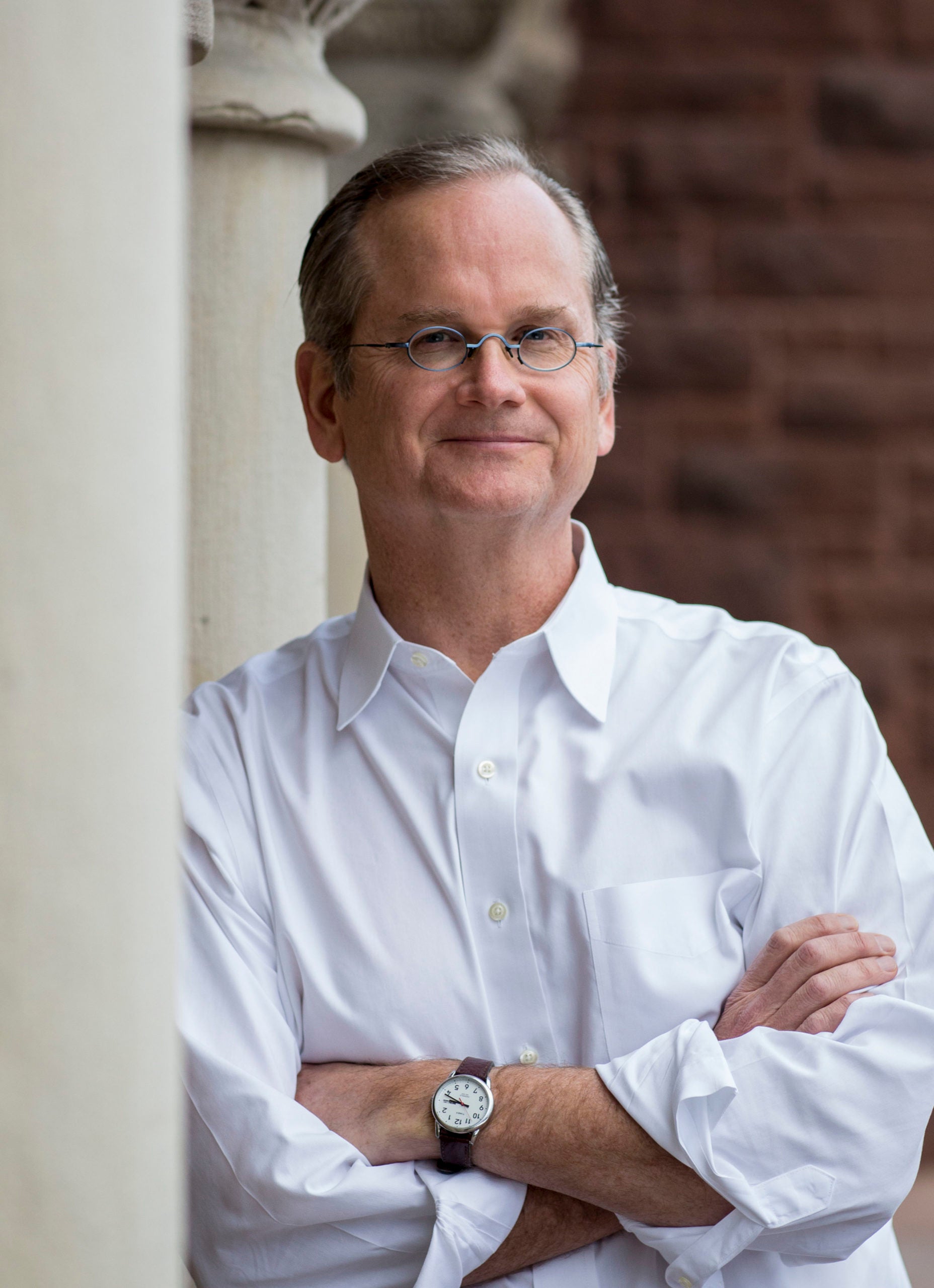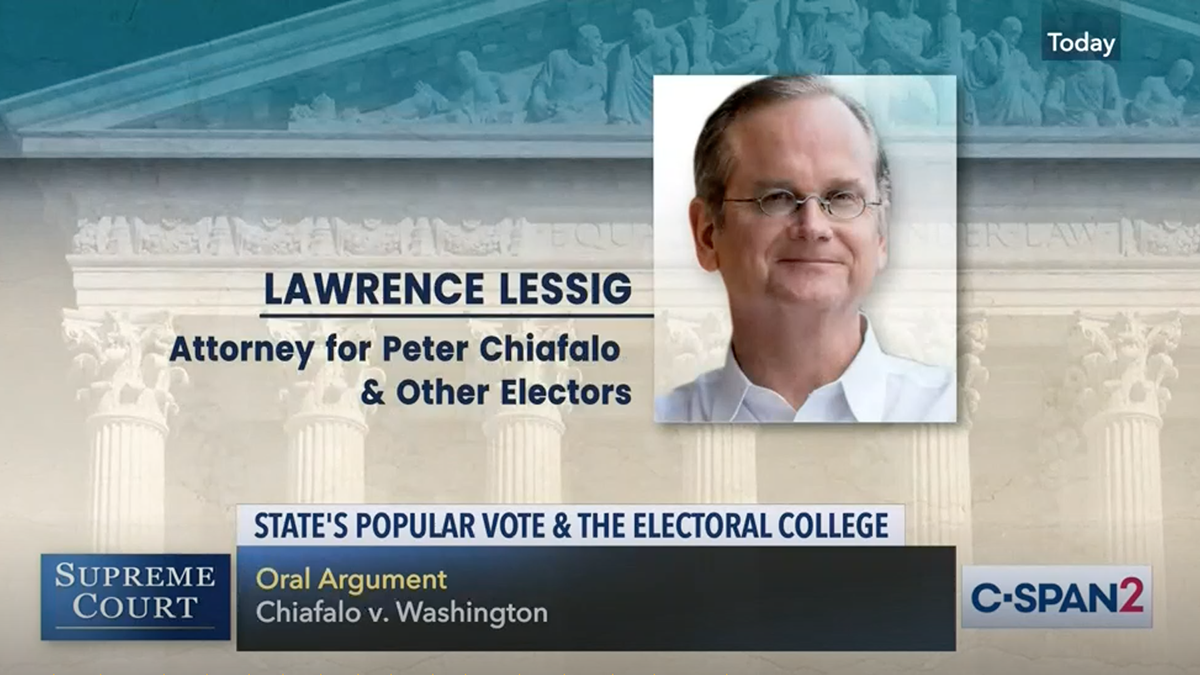In a unanimous decision on Monday, the Supreme Court ruled that states can require Electoral College voters to back the victor of their state’s popular vote. The decision gives states the right to compel so-called ”faithless electors” to cast their electoral ballots for the candidate chosen by their state’s voters.
The decision involved two cases—Chiafalo v. Washington and Colorado Department of State v. Baca—that were brought by Electoral College voters in Washington state and Colorado who refused to back Democrat Hillary Clinton in 2016, despite her wins in those states.

Harvard Law Professor Lawrence Lessig, the Roy L. Furman Professor of Law and Leadership at Harvard Law School and an attorney for the Washington electors, delivered oral argument in Chiafalo v. Washington, in May. Jason Harrow ’11 delivered oral argument in Colorado Department of State v. Baca. Harrow is an attorney for Equal Citizens, a nonprofit Lessig founded that is dedicated to reforms that will achieve citizen equality.
In a statement released after the opinion was announced, Lessig said that “regardless of the outcome, it was critical to resolve this question before it created a constitutional crisis.”
He continued: “Obviously, we don’t believe the court has interpreted the Constitution correctly. But we are happy that we have achieved our primary objective—this uncertainty has been removed. That is progress.”
In the Chiafalo case, Lessig argued—via teleconference due to the coronavirus pandemic—that the purpose of the Electoral College was to allow for state representatives to exercise their discretion when choosing a president.
In Court papers, Lessig said that the issue of elector discretion must be resolved because America’s changing demographics mean that contests at the state level will become even closer.
“The issue is undeniably important: presidential elections in the Electoral College will be increasingly close, and could literally turn upon whether electors have a constitutionally protected discretion,” he said.
He noted that a swing of 10 electors—the number of faithless electors in 2016—would have changed the outcome of five of the 58 prior U.S. presidential elections.
Listen to Lessig’s oral argument Chiafalo v. Washington
Lessig is the author of the 2019 book “They Don’t Represent Us: Reclaiming Our Democracy,” which argues that the nation’s political system is in a state of dysfunction, mired in partisanship and dominated by special interests. [Read related Q&A in the Harvard Gazette].
In October 2019, the Harvard Law & Policy Review hosted a conference at Harvard Law School on the history and future of the Electoral College. The event featured a panel discussion on a proposed system that would elect the president by popular vote as well as a keynote address by Lessig, in which he outlined a new proposal for a constitutional amendment he suggested could garner broader support. The plan would award the support of each state’s electors to the top two candidates on a “fractional proportional” basis, meaning they would receive votes equal to their percentage of the overall state results. It also includes a provision aimed at lessening what some critics consider the unfair advantage small states enjoy in the allotment of electoral votes.
Related Reading
Lawrence Lessig examines what it means to reinvigorate democracy
